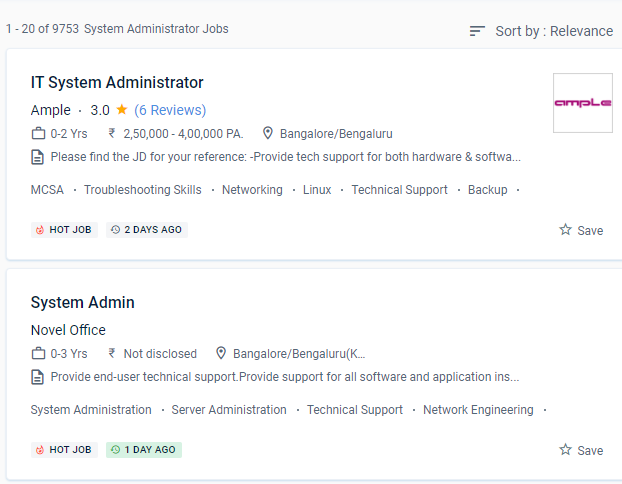System Administration Training by Experts
Our Training Process

System Administration - Syllabus, Fees & Duration
MODULE 1
- System administration introduction, policies, overview, UNIX history and basis
MODULE 2
- File systems and disks
MODULE 3
- Software installation concepts
MODULE 4
- Multi users basics, politics, policies and ethics
MODULE 5
- Automating administrative tasks
MODULE 6
- Networking
MODULE 7
- Backup and disaster recovery
MODULE 8
- DNS
MODULE 9
- SMTP, HTTP
MODULE 10
- Configuration management
MODULE 11
- Distributed computing
MODULE 12
- SNMP, monitoring
MODULE 13
- System security
This syllabus is not final and can be customized as per needs/updates





 You now understand what system administration entails, as well as the functions that system administrators execute and the talents that system administrators possess.
The System Administration course in Rotorua will take you from working on a single machine to managing a complete fleet. Computer scientists research to develop new IT approaches that are both effective and efficient. Information technology (IT) experts execute the work of systems administration for a company. These experts may go on to become technology and IT managers in the future. Finally, you'll discover how to restore your company's IT infrastructure following a disaster. We'll take a deep dive into the cloud, covering everything from common cloud infrastructure setups to cloud resource management. It is their responsibility to ensure that computer systems and related services work smoothly.
All of the important components of the corporate computing infrastructure are managed by system administrators. Students who pursue a diploma in this field have a fantastic opportunity to expand their expertise.
You now understand what system administration entails, as well as the functions that system administrators execute and the talents that system administrators possess.
The System Administration course in Rotorua will take you from working on a single machine to managing a complete fleet. Computer scientists research to develop new IT approaches that are both effective and efficient. Information technology (IT) experts execute the work of systems administration for a company. These experts may go on to become technology and IT managers in the future. Finally, you'll discover how to restore your company's IT infrastructure following a disaster. We'll take a deep dive into the cloud, covering everything from common cloud infrastructure setups to cloud resource management. It is their responsibility to ensure that computer systems and related services work smoothly.
All of the important components of the corporate computing infrastructure are managed by system administrators. Students who pursue a diploma in this field have a fantastic opportunity to expand their expertise.



















































































